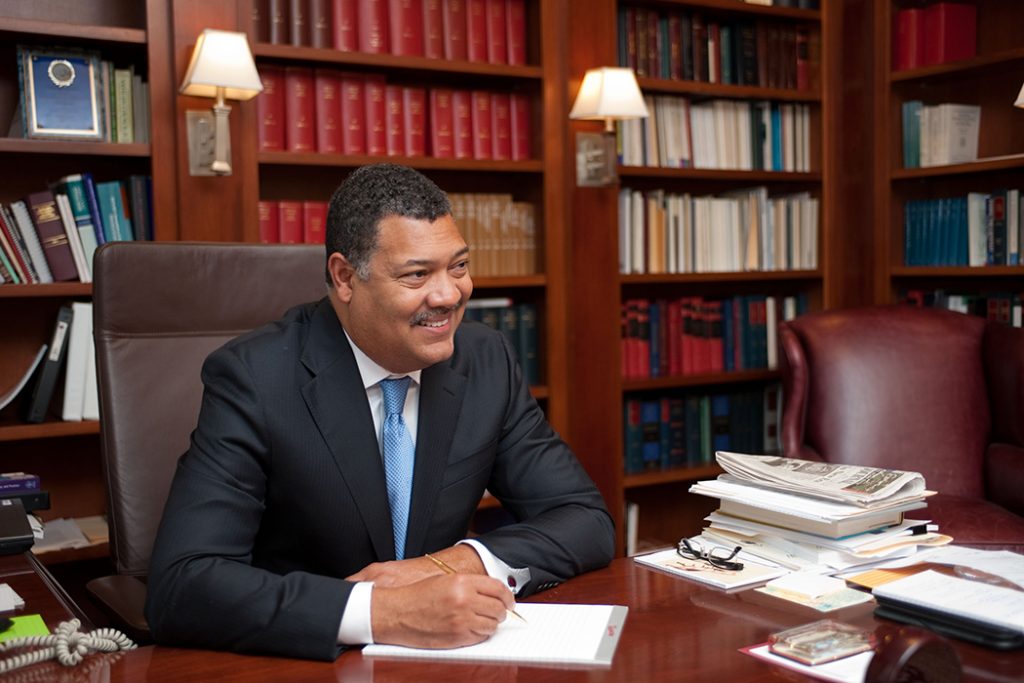President Trump’s recent decision to declare a national emergency in order to divert public funds to construct a wall along the nation’s southern border has generated intense debate, and now, numerous lawsuits. As it happens, focusing on global migration is the most recent way that Boston College is organizing cross-professional collaboration among its professional schools in an effort to find lasting solutions to our intractable policy impasse on immigration.
In April, Boston College Law School will join with the university’s School of Social Work to host a major interdisciplinary conference on Global Migration. Panels will address a wide range of issues, including the human rights of migrants, migrants’ entitlement to public benefits, and the role of migration in supplying critical labor in the business community. We expect to learn a lot about how social workers think about these issues and to share, in turn, our legal perspectives.
Law is as guilty as many other disciplines of staying inside its silo. If the passion generated by debates about a border wall have taught us anything, it’s that all kinds of boundaries and norms are being breached by the forces of change. Our longstanding ways of understanding issues like immigration, citizenship, membership, and community are no longer suited to the scope and scale of problems driven by new geopolitical, technological, economic, and social realities. If universities are going to remain relevant, our schools and departments will need to share ideas and open up to interdisciplinary possibilities that our narrow disciplinary interests may have blinded us to.
At Boston College, we are taking steps in that direction—a direction that may prove useful to law schools everywhere. We are fortunate here to have a long tradition of excellence in professional education in law, business, social work, education, nursing, theology, and ministry. It is increasingly clear that for these professional schools to be truly relevant in the decades ahead, they will need to think more strategically about how they might work together.
Physical barriers to human migration have long proved ineffective, and that is particularly true in an era of rapid technological change. It is not difficult to see that solutions to problems related to the increasing numbers of people on the move around the globe will only be achieved if we consider how particular social, political, economic, and cultural conditions interact. This work not only requires schools to seize opportunities to work together, but also faculty who have the training or interest to bring related fields into ongoing, productive partnerships.
BC Law School has a full-time social worker and lawyer on our clinical faculty, Claire Donohue, who incorporates social work theory and methodology in her work with law and social work students in the legal clinics that are part of our Center for Experiential Learning. BC Law professor Vlad Perju is the director of the University’s Clough Center for the Study of Constitutional Democracy, and we partner with the Center on our Lectures in Jurisprudence series, as well as host Clough leading thinkers in philosophy, political science, art and other disciplines. Our Human Rights Interdisciplinary Seminar brings law and political science students together, and in our Global Citizen Interdisciplinary Seminar, students across law, social work, theology, and other disciplines explore issues of poverty, ecology, and migration followed by a weeklong immersion experience in Haiti.
With the diverse perspectives of interdisciplinary curricula and projects, we can help law students understand how legal issues inform critical policy decisions across a wide range of issues, and we can teach them how to build successful cross-professional partnerships that will be a critical part of the work that many of them will do as lawyers and other professionals.
At a time when our nation is struggling to act with a sense of common purpose to address critical problems that need immediate action, our law schools can model a new wave of research and teaching collaboration that seeks to take full advantage of the extraordinary range of expertise across the university. We should not fail to see the parallel between the futile quest to build a wall on America’s southern border in an effort to corral human beings with similarly unwise attempts to throw up barriers between schools on a university campus in an effort to control knowledge.
-Vincent Rougeau, Dean
Boston College Law School


